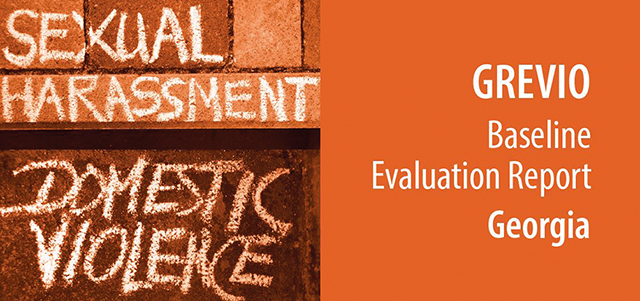First Report on the Implementation of Istanbul Convention in Georgia: Welcomes Legislation, Calls to Increase Services for Victims, and Discourages Perpetrators
In its first report on Georgia, released on Tuesday, the Council of Europe‘s Monitoring Body GREVIO praised the many steps taken to align Georgian laws, policies and institution framework with the Istanbul Convention. Further legal amendments will be needed. More domestic violence shelters, sexual violence crisis referral centres, and bureaucratic barriers to obtaining victim status must be addressed. The comments from the Georgian government have also been published.
The victims of sexual violence in Georgia do not have access to centers for referral that are geographically distributed throughout the state.
Adoption of the National Action Plan on Combating Violence against Women and Domestic Violence and Protection of Victims for 2018-2020, along with policies, was a significant step in aligning Georgia’s obligations to its commitments under this convention. The Law on Domestic Violence was amended to include all forms of domestic violence. It also contains elements that are welcome, such as the provision of a special leave for victims during their stay in a crisis centre or shelter, and the formal designation of victim status for those who witness domestic violence.
In the Criminal Code, domestic violence, as well as other crimes like forced marriage, female-genital mutilation and stalking, as well as forced sterilization, have been added. In 2019, the Criminal Code was amended to include new crimes such as forced marriage, female genital mutilation, stalking and forced sterilization. The Georgian Criminal Code needs to be amended to include the concept of lack of consent in the definition of rape, and other sexual violence offences.
The victims do not have access to a fully-established rape crisis or sexual violence referral center that is geographically distributed throughout Georgia. There are also very few services available for women and girls who may be forced into marriages or at risk. Administrative requirements, such as obtaining victim status, can prevent women from accessing domestic violence shelters. GREVIO urges the authorities also to improve access to support services, protection mechanisms, and women who are at risk of intersectional racism, such as women from national or ethnic minorities living in rural areas, refugees, women with disabilities, lesbians, bisexuals, and transgender women and older women. Children who witness violence are often invisible to the system.
In addition, the financial resources allocated to the state and non-governmental actors should be increased, and their involvement in the development of anti-violence laws and policies should be increased.
Investigations and prosecutions are not conducted with promptness, effectiveness and sensitivity
The criminal justice system’s response to sexual violence is hampered by serious deficiencies: investigations and prosecutions are slow, ineffective, and lacking in sensitivity. The report calls for immediate action to ensure a prompt and adequate response in cases of sexual violence and rape.
It is important to identify and address the factors that contribute towards the high threshold of proof for rape, and to avoid re-traumatizing victims. It is also important to take immediate action to ensure that the criminal penalties are deterrent and commensurate with their severity. Courts should also consider all domestic violence incidents when deciding custody or visitation.
GREVIO urges authorities to review process of issuing emergency barring orders, to identify and address the reasons for the high proportion (around 60%) of orders annulled in court (in 2018-2021), to monitor compliance with these orders. In the same way, the reasons for the high number violations of protection and restraining orders should be identified and appropriate sanctions applied when such orders are violated. GREVIO is concerned that in 2018, 60 investigations were initiated for violations of restraining order, and in 2019, the number increased to 516. However, no information was provided regarding the sanctions imposed.
In its report, GREVIO urges the Georgian Authorities to ensure that women who are victims of violence and in need of protection – regardless of their status or place of residence – will not be returned to any country in which their lives would be in danger or where they could be subjected torture or inhumane or degrading treatments or punishment.
GREVIO also points out that patriarchal attitudes and stereotypes about gender roles, acceptable behavior, and acceptable behaviors are still prevalent in Georgian culture. Media should stop perpetuating gender stereotypes, and work to promote women’s equality in society, public debate and media.
Read More @ georgiatoday.ge




